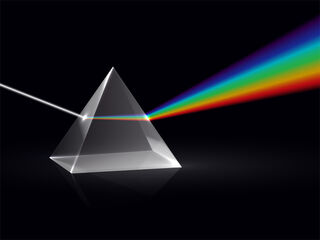ADHD
Why ADHD Should Be Renamed
Part 2: ADHD is a problematic label and should be changed.
Posted July 6, 2021 Reviewed by Vanessa Lancaster
Key points
- ADHD can be a confusing and sometimes misleading name for some people with the condition.
- There is a debate in the field to calling ADHD a spectrum disorder.
- Language used for naming ADHD medications, such as stimulants, is also misleading and merits a deeper discussion of changing the name.
In our last post, we started to make the case that ADHD should be renamed. We reviewed some issues with the name as it stands. But where should we go from here? In this blog, we discuss what we think a new name should encompass.
Should ADHD be called a “spectrum” disorder? The practice of referring to behavioral conditions as “spectrum disorders” received the American Psychiatric Association’s imprimatur in 2013 with the publication of DSM-5 and the relabeling of autism as “Autism Spectrum Disorder.” One consequence has been the current fashion in some clinical circles to refer to other psychiatric conditions as “spectrum disorders.”
We are not in favor of this becoming accepted diagnostic practice. The problem with labeling psychiatric conditions as “spectrum disorders" is that ALL human behavior exists on a spectrum. Nearly everybody has gone through experiences, circumstances, or times when they were a little depressed, a little anxious, moody, irritable, overly-confident and self-inflated, shy, socially awkward, inattentive, or impulsive.
Does that mean we all have “Depressive Spectrum Disorder,” “Anxiety Spectrum Disorder,” “Bipolar Spectrum Disorder,” “Autism Spectrum Disorder,” or “Attention Deficit Spectrum Disorder”? By this reasoning, every human on earth is “on the spectrum” of some psychiatric diagnosis or another. Should we all go to talk therapy, take psychiatric medications, obtain accommodation at school or work, or consider going on disability?
The practice of diagnosing people with mild symptoms on a spectrum is ominous as well: What if there is no evidence a person’s behavior causes problems for themselves or anybody else, but some authority figure - a parent, psychologist, psychiatrist, employer, or our government - wants to label them as 'abnormal' - of having some “spectrum disorder"?

It was precisely to prevent this that, starting with DSM-IV (1994), every psychiatric condition has to meet a “clinical significance” criterion to be diagnosable. For ADHD in DSM-5, this criterion states there must be “clear evidence that the symptoms interfere with, or reduce the quality of, social, school, or work functioning.”
We support continuing the use of severity criteria to justify psychiatric diagnosis. Although all human behavior exists along a spectrum, a line has to be drawn somewhere between normal variation vs. medical conditions that warrant a diagnosis, treatment, and accommodation by the rest of society. “Spectrum Disorders” should not become the norm for psychiatric diagnostic practice.
With that said, what could we use in place of “ADHD”? An eventual solution will be to name psychiatric conditions according to their biological basis. In the future, many psychiatric diagnoses, not just ADHD, are likely to be reified, re-aligned, and relabeled according to a more solid scientific understanding of their underlying biological causation: “Dopamine Transporter Deficiency,” “Amygdala-BNST Circuit Sensitivity,” “Left Fronto-Cortical Hypoactivity,” etc. That may come someday, but it’s still quite a way off for the most part. We don’t expect it in time for DSM-6. What to do in the meantime?
Here are some words we suggest merit consideration as part of any future diagnostic label for ADHD:
Some combination of:
- Attention (or Focus), Impulse
- Activity (or Movement or Energy)
- Regulation or Dysregulation
- Balance or Imbalance
Examples might include:
- Attention, Impulse, or Activity Dysregulation
- Focus, Impulse or Movement Regulation Imbalance etc.
- Attention/Focus, Impulsive, and Energy Regulation (AFIRE)
- Impulse Movement and Energy Regulation (joke: could be called SquIrMER!)
While we are at it, can we please get away from calling ADHD medications “stimulants” and "non-stimulants"? This also causes a lot of misconceptions and other problems. The name “stimulant” arose because these same medications can make people feel more awake (and are still used for that purpose in patients with sleep-wake cycle disorders, but these are far less common conditions than ADHD, which has become their primary medical indication).
In terms of ADHD, "stimulation" isn't the therapeutic goal of using these medications at all - it's a side effect. It's unprecedented in medicine to call a medication by its side-effect profile. That's like calling blood pressure pills “sedatives” because they sometimes make people feel tired, or antidepressants and antipsychotics “appetite inducers” or “hypometabolics” because they often make people gain weight. Caffeine is a "stimulant" too (though not an effective one for ADHD–see our prior posts on this subject) - yet Starbucks marketing executives haven’t labeled any of their products as such (“I’ll have a grande-nonfat-high-stimulant mocha, please”).
As for the name "non-stimulant," it's even worse: it's calling a medication by what it is not! There are literally no other medications we can think of that are named by such a convention.
We have medications in psychiatry and neurology called antidepressants, antipsychotics, anxiolytics, anticonvulsants, antimigraine, etc. Shouldn’t we call ADHD medications by what they are used to treat: “Focussants,” “Anti-impulsives,” "Impulsilytics," or "Antihyperactives"? Or by their biological activity: "Synaptic Dopamine Releasors" (SDRs), "Norepinephrine Reuptake Inhibitors" (NRIs), etc.?
Words do matter.




